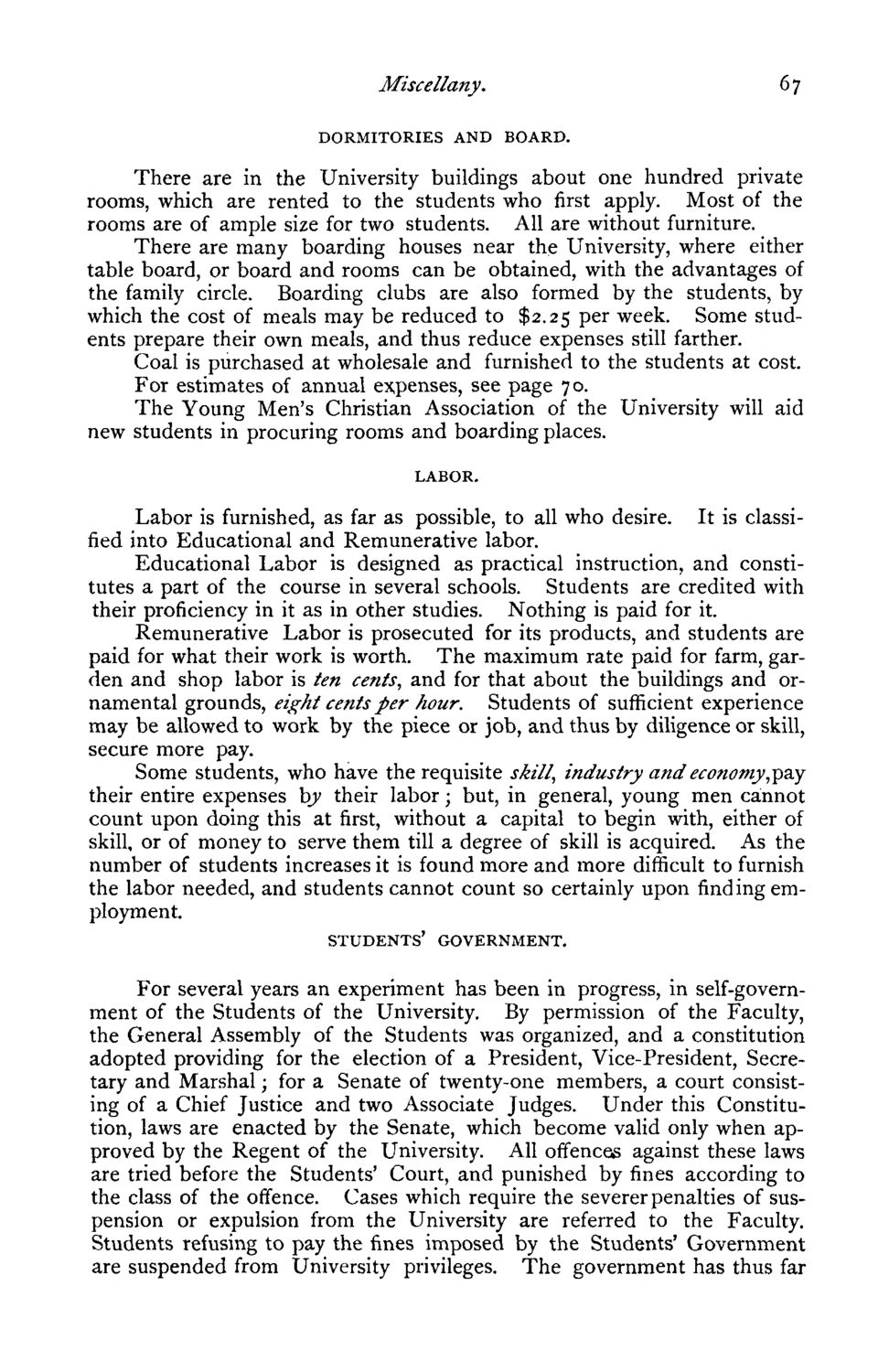| |
| |
Caption: Course Catalog - 1877-1878 Version A
This is a reduced-resolution page image for fast online browsing.

EXTRACTED TEXT FROM PAGE:
Miscellany. DORMITORIES AND BOARD. 67 There are in the University buildings about one hundred private rooms, which are rented to the students who first apply. Most of the rooms are of ample size for two students. All are without furniture. There are many boarding houses near the University, where either table board, or board and rooms can be obtained, with the advantages of the family circle. Boarding clubs are also formed by the students, by which the cost of meals may be reduced to $2.25 per week. Some students prepare their own meals, and thus reduce expenses still farther. Coal is purchased at wholesale and furnished to the students at cost. For estimates of annual expenses, see page 70. The Young Men's Christian Association of the University will aid new students in procuring rooms and boarding places. LABOR. Labor is furnished, as far as possible, to all who desire. It is classified into Educational and Remunerative labor. Educational Labor is designed as practical instruction, and constitutes a part of the course in several schools. Students are credited with their proficiency in it as in other studies. Nothing is paid for it. Remunerative Labor is prosecuted for its products, and students are paid for what their work is worth. The maximum rate paid for farm, garden and shop labor is ten cents, and for that about the buildings and ornamental grounds, eight cents per hour. Students of sufficient experience may be allowed to work by the piece or job, and thus by diligence or skill, secure more pay. Some students, who have the requisite skill, industry and economy',pay their entire expenses by their labor; but, in general, young men cannot count upon doing this at first, without a capital to begin with, either of skill, or of money to serve them till a degree of skill is acquired. As the number of students increases it is found more and more difficult to furnish the labor needed, and students cannot count so certainly upon finding employment. STUDENTS' GOVERNMENT. For several years an experiment has been in progress, in self-government of the Students of the University. By permission of the Faculty, the General Assembly of the Students was organized, and a constitution adopted providing for the election of a President, Vice-President, Secretary and Marshal; for a Senate of twenty-one members, a court consisting of a Chief Justice and two Associate Judges. Under this Constitution, laws are enacted by the Senate, which become valid only when approved by the Regent of the University. All offences against these laws are tried before the Students' Court, and punished by fines according to the class of the offence. Cases which require the severer penalties of suspension or expulsion from the University are referred to the Faculty. Students refusing to pay the fines imposed by the Students' Government are suspended from University privileges. The government has thus far
| |